
At that time, I had read some archival documents about Le Thanh Y, Professor Khoi's father, but had not read any of his books. I only knew briefly that he was a famous overseas Vietnamese professor in France, like Mr. Hoang Xuan Han, Cao Huy Thuan...
Entering his living room, I was not surprised but felt familiar because of the "clutter of knowledge". The French and Vietnamese professors in Paris that I visited all had living rooms "full of books".
The room was large but cramped because of the books, statues and antiques, not to mention the paintings that covered the walls.
What immediately warmed my heart was the kindness and delicacy of my aunt and the simplicity, frugality, and somewhat reservedness of Professor Le Thanh Khoi.
That was enough for me to return to visit my grandparents more often in the following months, and each time my aunt treated me to fruit, jam, and cakes.
I started reading his books on Vietnamese history: Vietnam, history and civilization (1955), History of Vietnam from the beginning to 1858 (1982), History and anthology of Vietnamese literature from the beginning to the present day (2008).
At that time, I had a lot of knowledge gaps so I just asked random questions, and whether the question was related to a specific field like education or culture, his answer always expanded to history, politics, philosophy, religion or art.
I remember the words of historian Charles Fourniau: "Le Thanh Khoi is not just a historian in the narrow sense. He has the view of Vietnam of an ethnologist, linguist, translator, of a Confucian scholar in the noblest sense of the word in ancient Vietnam".
In my eyes at that time, he was a profound historian. Comparison and contrast were his constant ways of thinking. But two years later, I understood why he had this particular way of thinking.
That was when I decided to do my PhD in education at Paris Descartes University (now Paris Cité).
He commented on my thesis outline, asking me questions that I had to research on my own. The red ballpoint pen he used to correct or mark ideas on the outline was still sharp.
He repeated, "You should find other professors because I've been retired for too long and am no longer up to date with the times!"
But 10 years later, in 2014, French experts still sought him out as a "supreme" advisor for the international conference on the education systems of the two continents of Asia and Europe organized by France Éducation International.
In particular, he was one of the pioneers in teaching and researching the three sub-disciplines of comparative education, educational economics and educational planning.
His research and consulting career took off alongside the development of educational studies, the rise of the French economy during the "Three Glorious Decades" and the prominent role of the French left-wing intellectuals in the postwar period.
He is a consultant and then senior advisor to many international organizations such as UNESCO, the United Nations Development Program, the International Labor Organization... for many decades, he has researched and worked in more than 40 countries in 4 continents: Africa, Europe, Asia and America.
As a left-wing intellectual, as he once admitted "I discovered Marxism in France in the early 1950s", he was the general secretary of the Third World Journal and made great contributions to the field of development research in France.
He was one of the key players in the research and development cradle of the 1960s and 1970s, which trained international educational consultants for both France and Europe.
The world after World War II entered economic recovery, educational and labor development but had to face the process of decolonization, population growth, and restructuring.
In the mid-1950s, the concept of "Third World" appeared to refer to slow or developing countries or countries that had just escaped colonial rule in the continents of Asia, Africa, and Latin America.
That favorable time and place, combined with the multilingual and multicultural baggage, along with the knowledge, qualifications and professional experience of an Asian living in Europe, helped Le Thanh Khoi freely swim in the big ocean.
As I became a PhD student at Paris Descartes, I became increasingly aware of his monumental career and the legacy he left for the field, the school, and the faculty.
Many of my professors were his students or young colleagues. We discussed his work in seminars.
Through these publications, he carried out a large-scale project: theorizing about education at the human level. Education was referenced by him in the length of human history, in contemporary movements.
Using interdisciplinary and cross-cultural methods, he demonstrates the fundamental role and importance of education for the endogenous dynamics of a civilization.
That is why Pierre-Louis Gauthier, professor and inspector general of education, said of him: "The career of a great gentleman, both witness and agent of the education of his time, in the orbit of planet Earth".
Now, I feel so fortunate to be his descendant in the academic aspect.
Ten years later, I became an educational consultant and lecturer in the same department as him at Paris Descartes University. After many decades, my uncle and I still occasionally meet to chat over cakes and tea lovingly prepared by my aunt.
At this time, I began to discover more about the artist, the poetic soul in him. Desire for Beauty (2000) is a comparative aesthetic essay.
Author Nguyen Thuy Phuong (middle) and Professor Le Thanh Khoi and his wife.
From art objects from many cultures that he himself photographed or collected, he analyzed the unique features of lines, composition, color, and shape, containing their own meanings, then generalized the uniformity and diversity in human artistic creation and defined universal standards of beauty.
Journey into Vietnamese Cultures (2001) or A Few Steps in Yunnan (2005) is an excursion to explore the spiritual and material life of a land that holds an important position in the history of Southeast Asian cultures through the narrative of a scholar with deep knowledge of Sinicized civilization and a comprehensive vision of world civilization.
Block of Love (1959) or Storks Flying Over the Rice Fields, Folk Songs and Classical Vietnamese Poetry (1995) help readers discover lyrical writing style, refined narrative style and a poetic soul.
At this time, my knowledge was a bit more profound, and I understood more about the conduct of Vietnamese intellectuals who traveled abroad in the 20th century. I began to talk to him about some important moments in his life.
After Dien Bien Phu, he received an invitation to return to Vietnam to contribute to the country, but he decided to stay in France. Every time he mentioned politics, he only said that the homeland is the people and the culture, that is what exists and lasts forever. In my eyes, he is a lyrical aesthetician, deeply attached to his homeland.
In that room full of knowledge, he listened to me tell about the joys and sorrows of life, the disappointments of work. And when I stepped out of there, my worries about life seemed to disappear, in my head popped up the song "Lullaby life, please...".
In his youth, he studied Greek and Latin, one of the roots of Western civilization in the Far East. In his youth, he studied Chinese characters, the roots of Chinese civilization in Western Europe.
That act seemed to be a predestined one, that for him, exploring the world was also a process of unceasing East-West exchange. His career, across time and borders, was a journey to learn about himself and understand others.
His life is a testament to the West's presence in the East through influences, borrowing, learning, and mutual support.
He helps us understand the specificities of each culture, embellishing and integrating them into the universality of all cultures, as a message, that people and cultures are both different and close, because that is the nature of humanity.
That wise, profound Asian scholar, in my eyes, is also a Western European humanist, a twin character from the Enlightenment and dialectical materialism.
"At the moment when a personality and a profound scholar like Professor Le Thanh Khoi leaves this world, we, deeply moved and with deep respect, can only quote the following words of his that we placed at the forefront of the conference on Asian education organized by the international education magazine Sèvres in 2014.
His conceptual consultation and attendance at the conference brought us great honor:
"[Nothing is more valuable than] exploring other cultures, other ways of thinking and behaving to better understand your own culture and understand yourself better.
Therefore, the theorization of education is an indispensable and first part of thinking: it is to question the concept, form, role and impact of education, not within the framework of a type of society that considers itself "universal" but from the perspective of different logics and different value systems, expressing the relativity of human relations" (Le Thanh Khoi, Education: cultures and societies, Publications de la Sorbonne, Paris, 1991, p.21)
This accomplished comparative pedagogue left behind a monumental legacy, a true model for pedagogy in France and throughout the world."
Jean-Marie De Ketele (professor emeritus, Catholic University of Louvain and Marie-José Sanselme, editor-in-chief of the international education magazine Sèvres)
Content: NGUYEN THUY PHUONG (educational consultant, researcher at Geneva University, director of external relations - Modus Operandi International Institute)
Design: VO TAN
Tuoitre.vn
Source: https://tuoitre.vn/giao-su-le-thanh-khoi-ong-de-lai-mot-khoi-tinh-tue-my-20250223115424402.htm




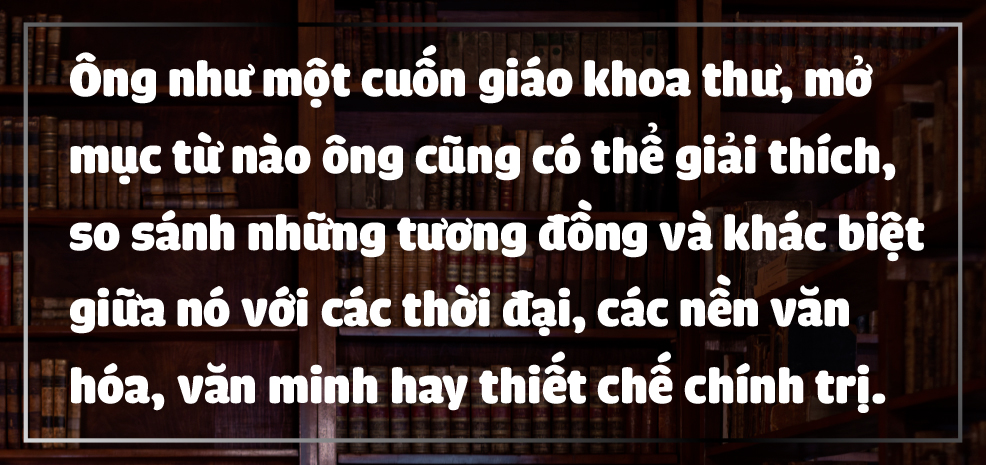

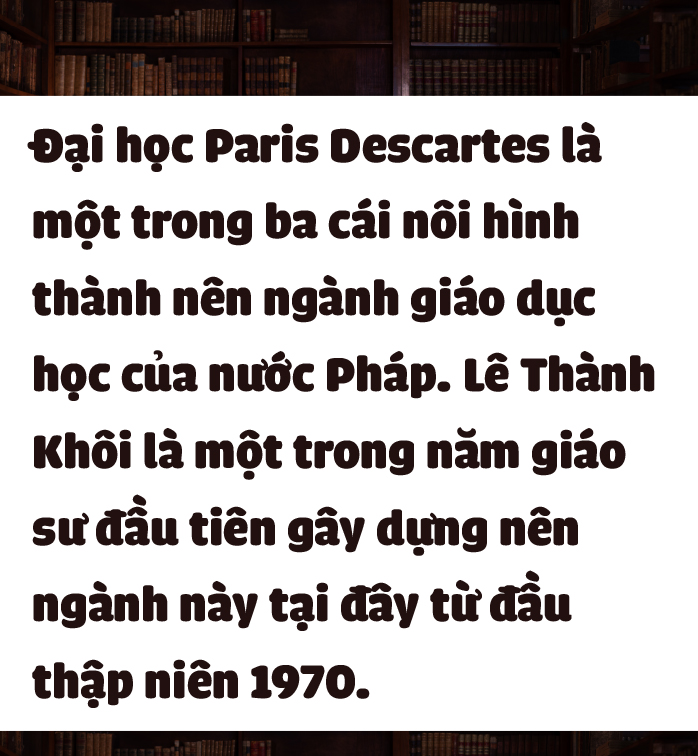
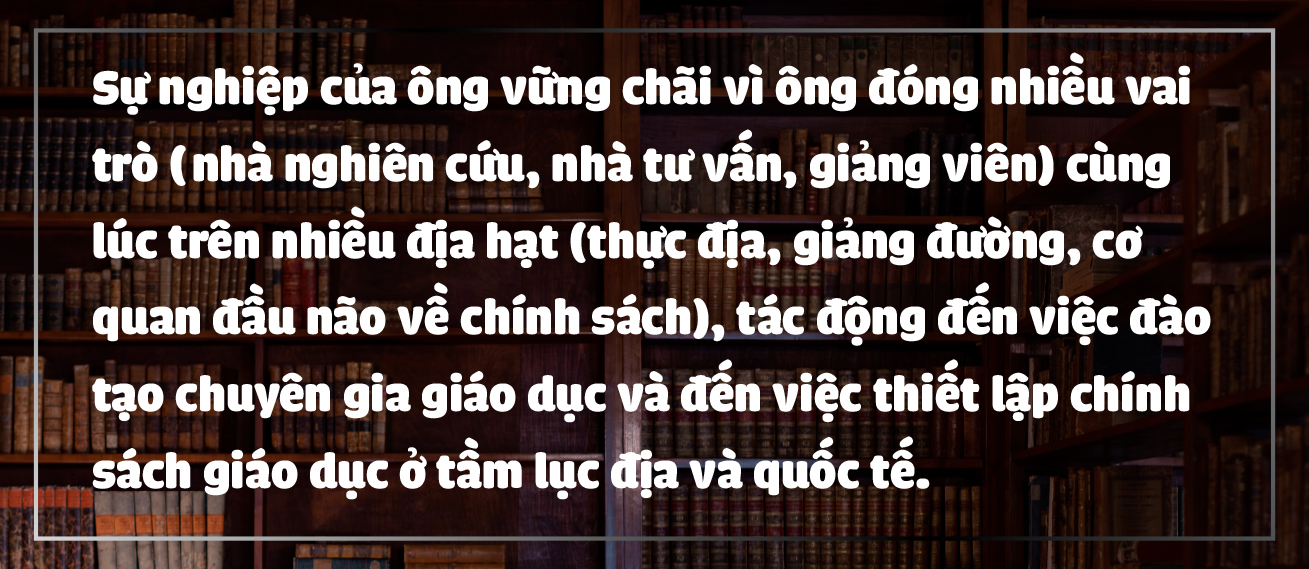

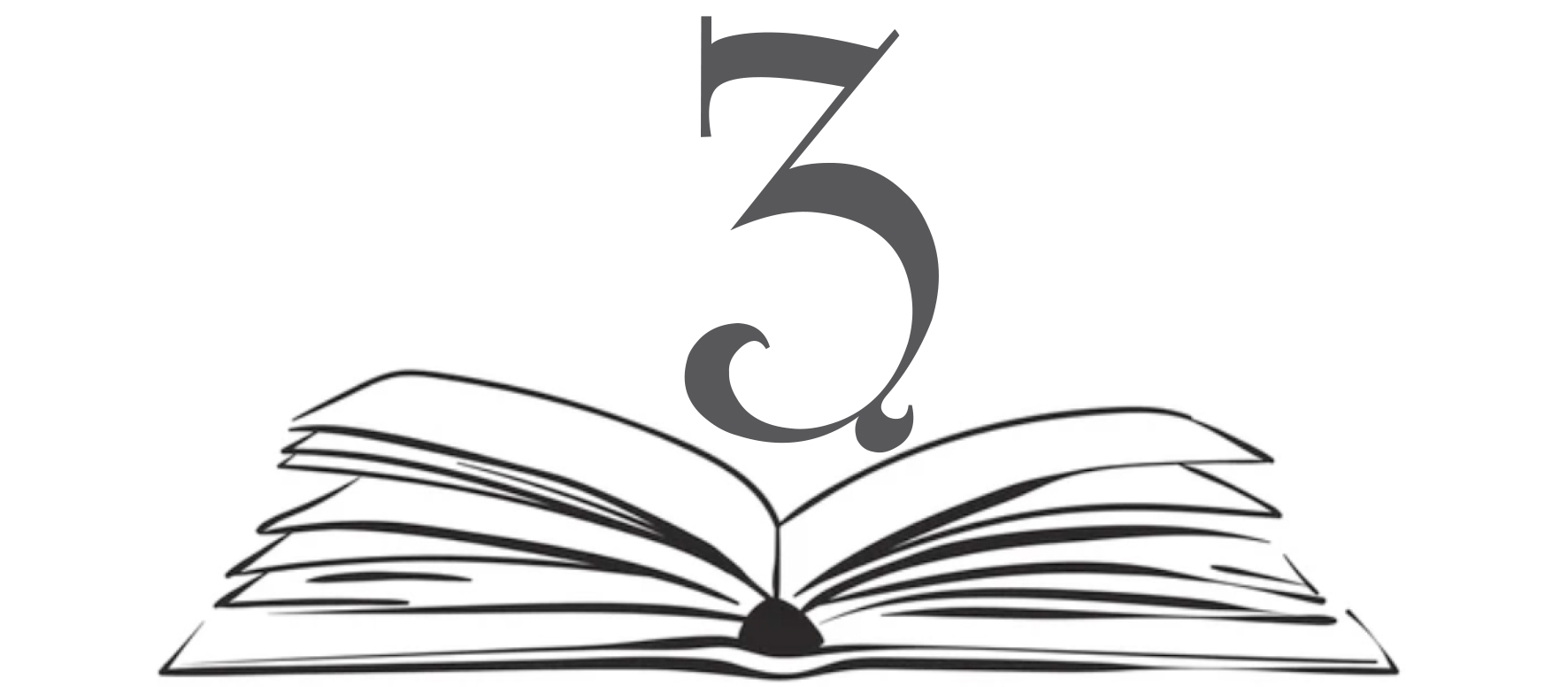
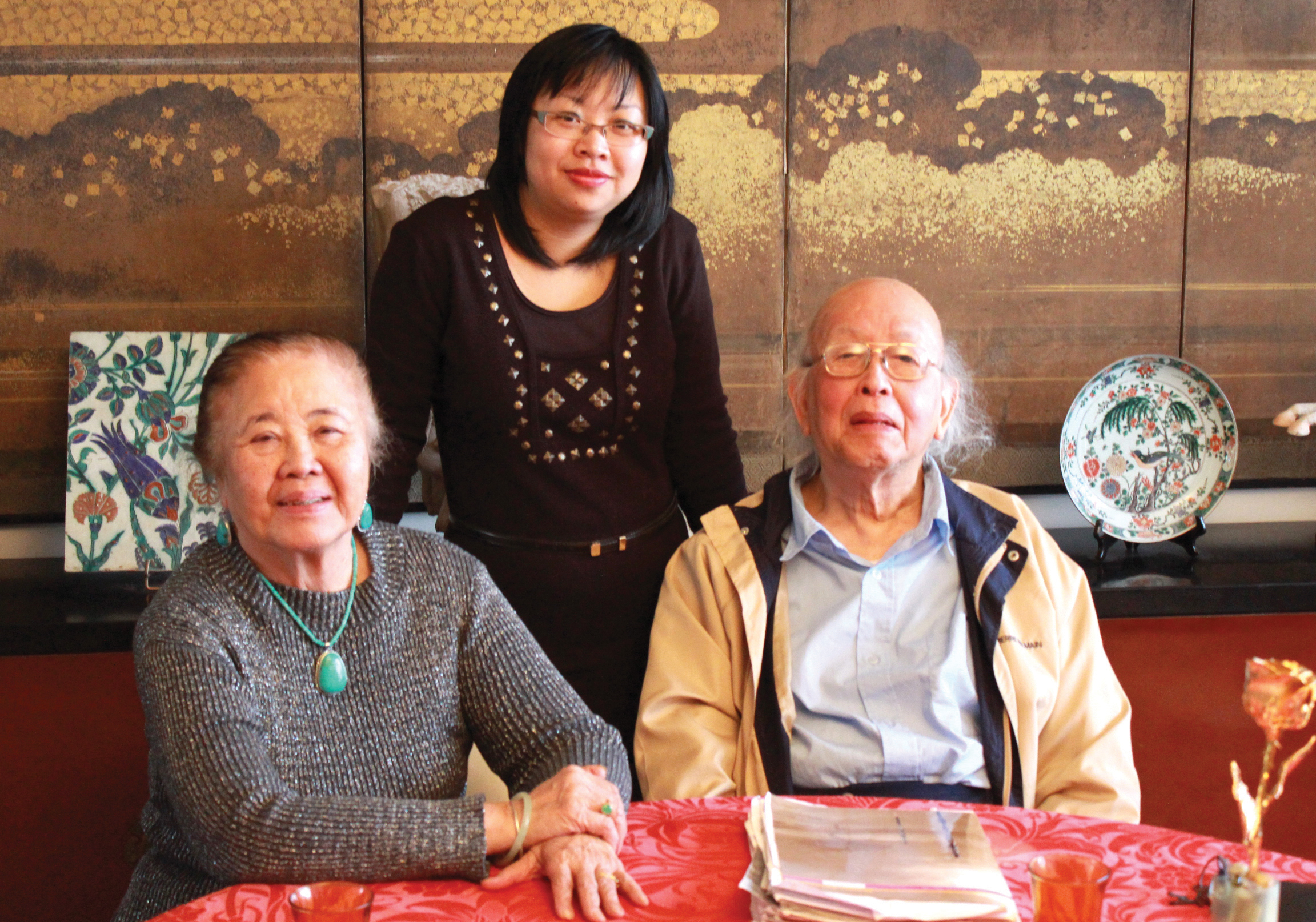
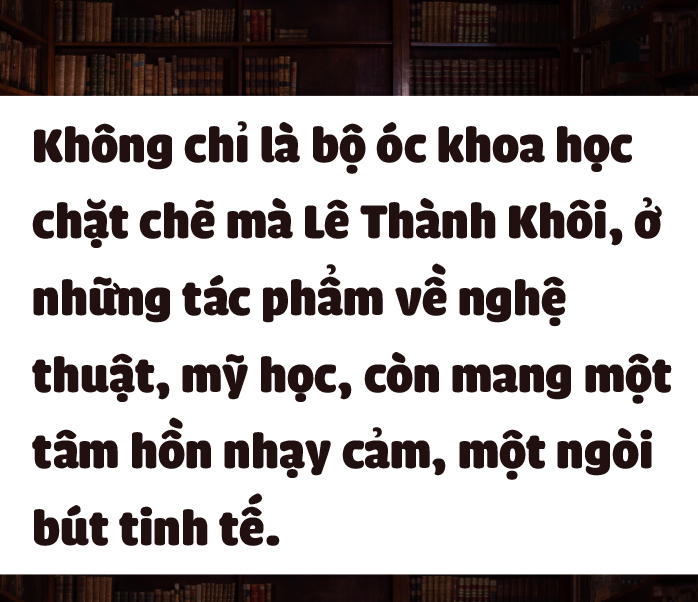
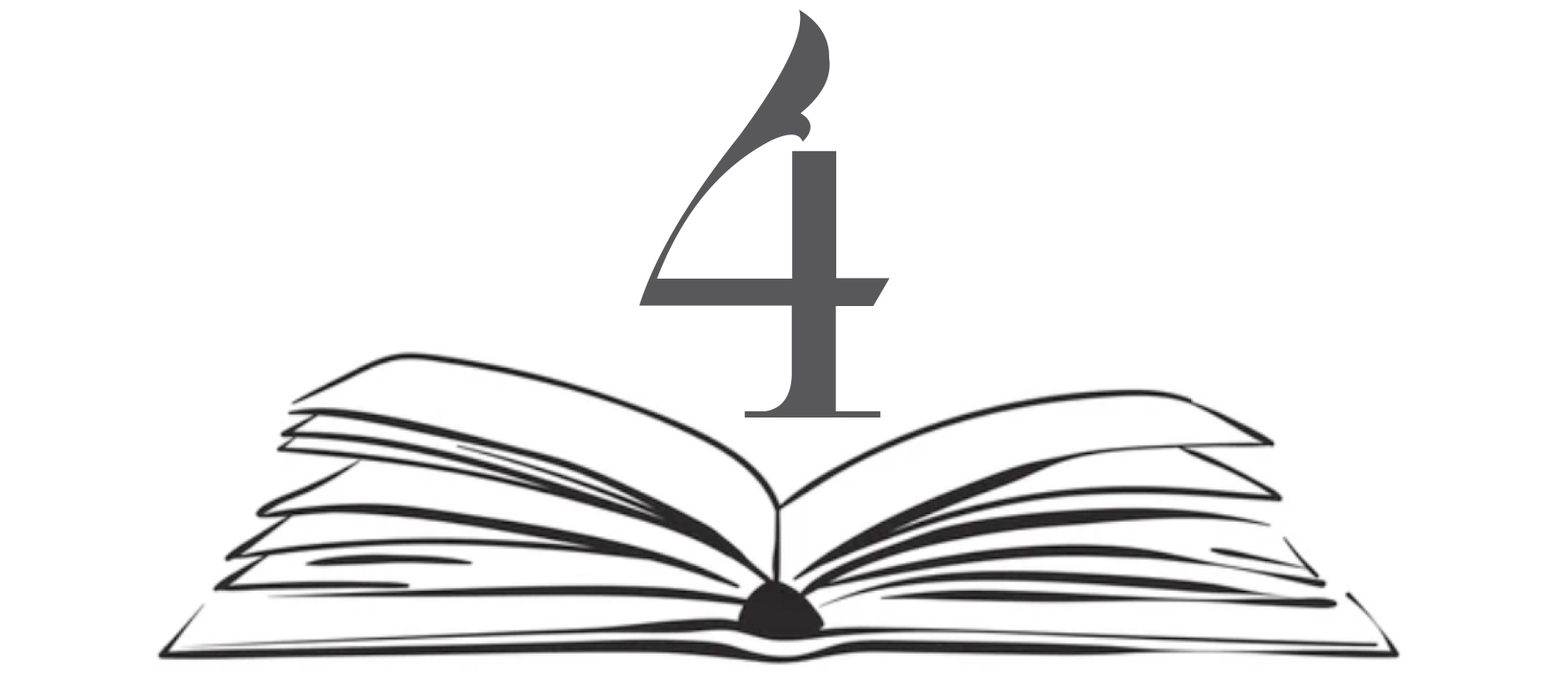
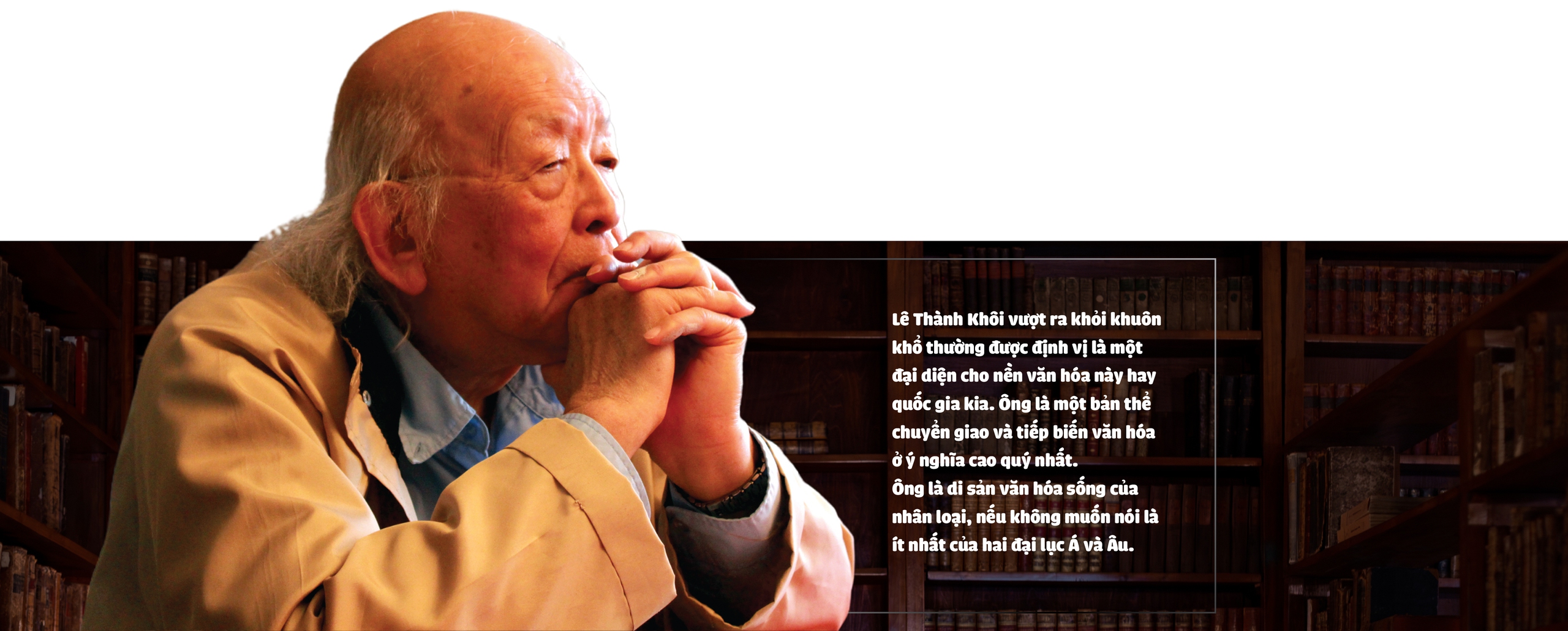


![[Photo] Prime Minister Pham Minh Chinh receives Deputy Prime Minister of the Republic of Belarus Anatoly Sivak](https://vstatic.vietnam.vn/vietnam/resource/IMAGE/2025/4/2/79cdb685820a45868602e2fa576977a0)

![[Photo] General Secretary To Lam receives Russian Ambassador to Vietnam](https://vstatic.vietnam.vn/vietnam/resource/IMAGE/2025/4/2/b486192404d54058b15165174ea36c4e)
![[Photo] Prime Minister Pham Minh Chinh receives CEO of Standard Chartered Group](https://vstatic.vietnam.vn/vietnam/resource/IMAGE/2025/4/2/125507ba412d4ebfb091fa7ddb936b3b)
![[Photo] Comrade Khamtay Siphandone - a leader who contributed to fostering Vietnam-Laos relations](https://vstatic.vietnam.vn/vietnam/resource/IMAGE/2025/4/3/3d83ed2d26e2426fabd41862661dfff2)


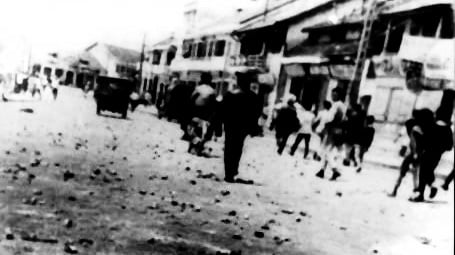
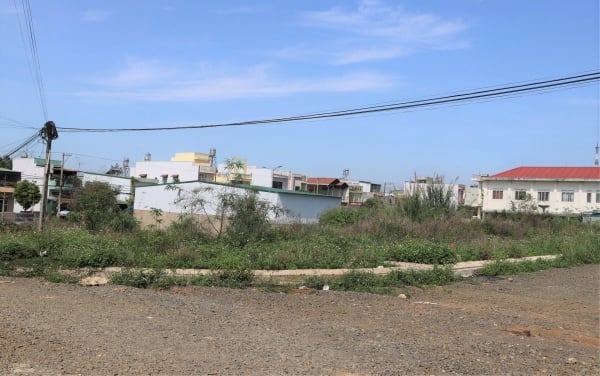
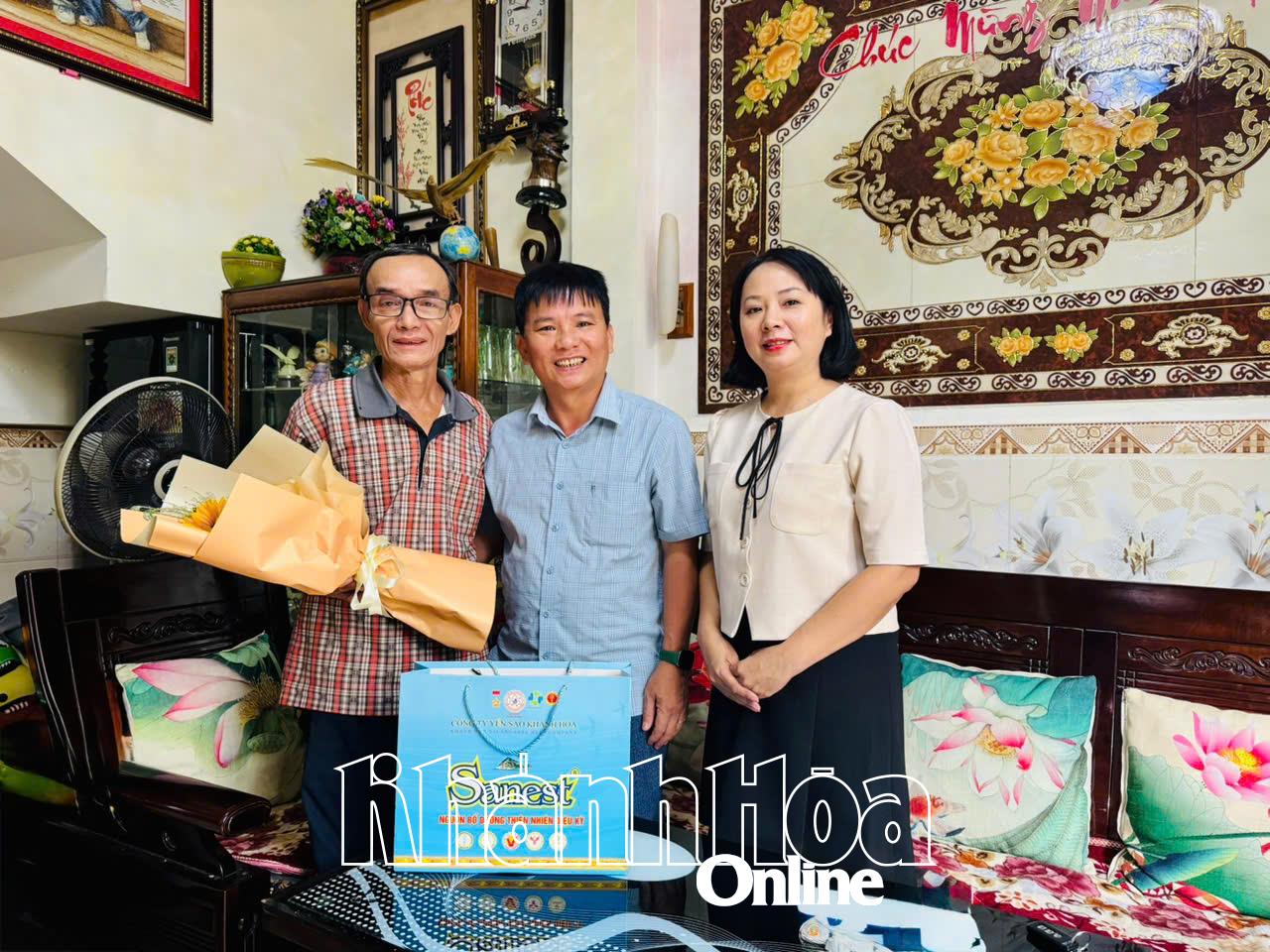
![[Podcast] News on March 26, 2025](https://vstatic.vietnam.vn/vietnam/resource/IMAGE/2025/4/3/c3d9c3c48b624fd9af79c13ff9e5c97a)
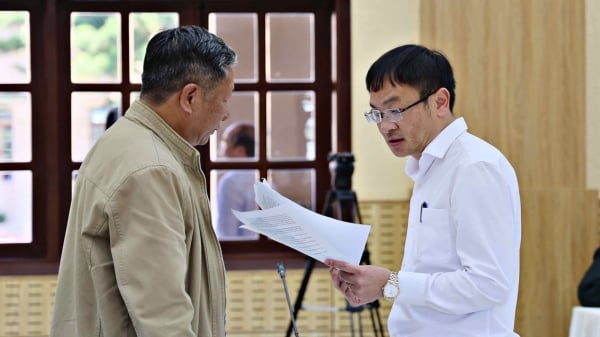











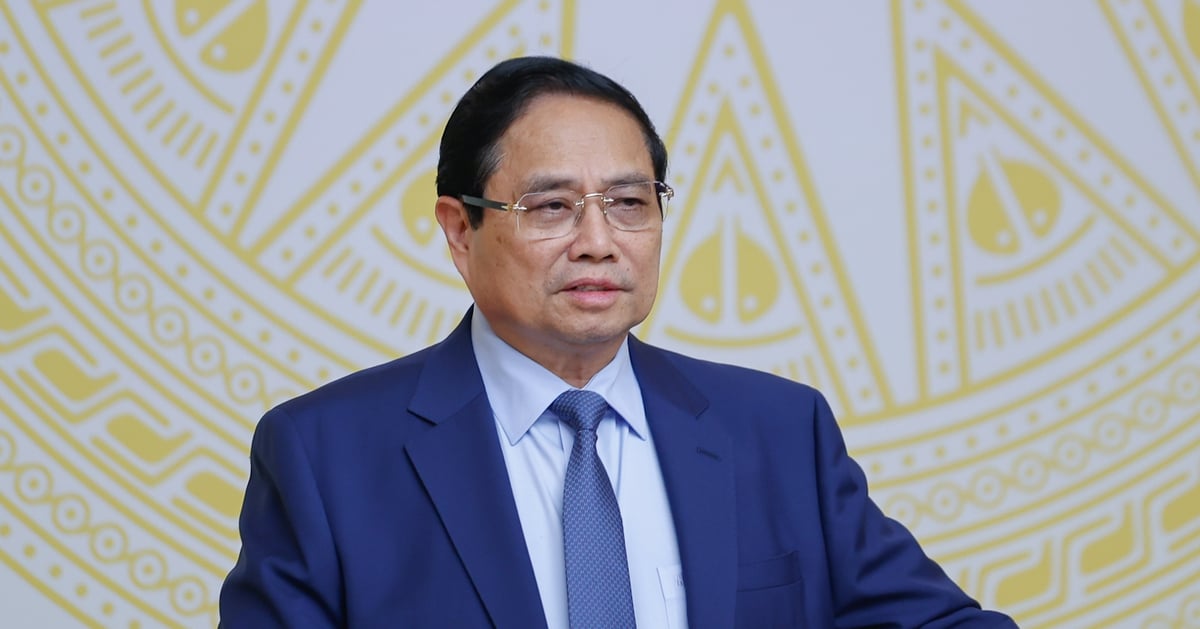


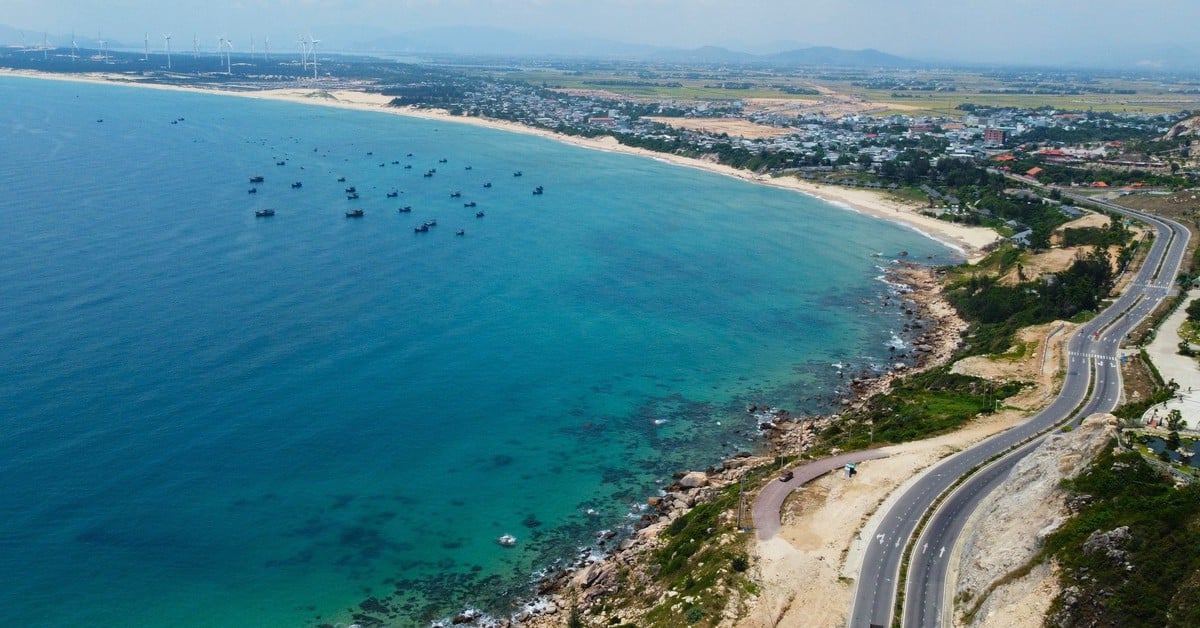
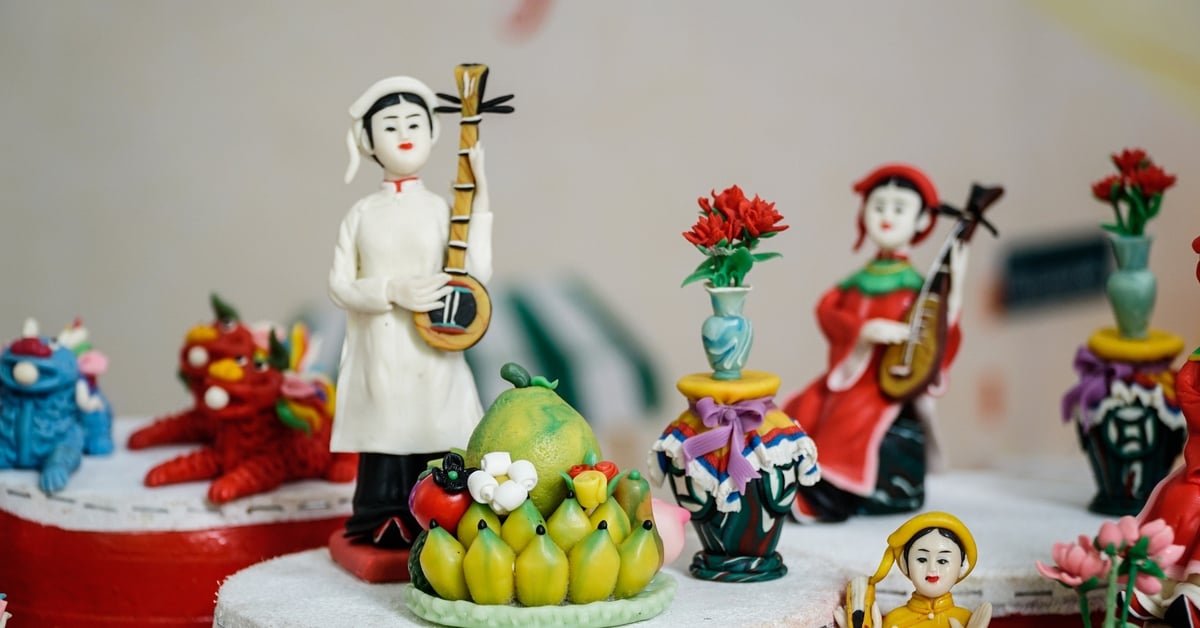










































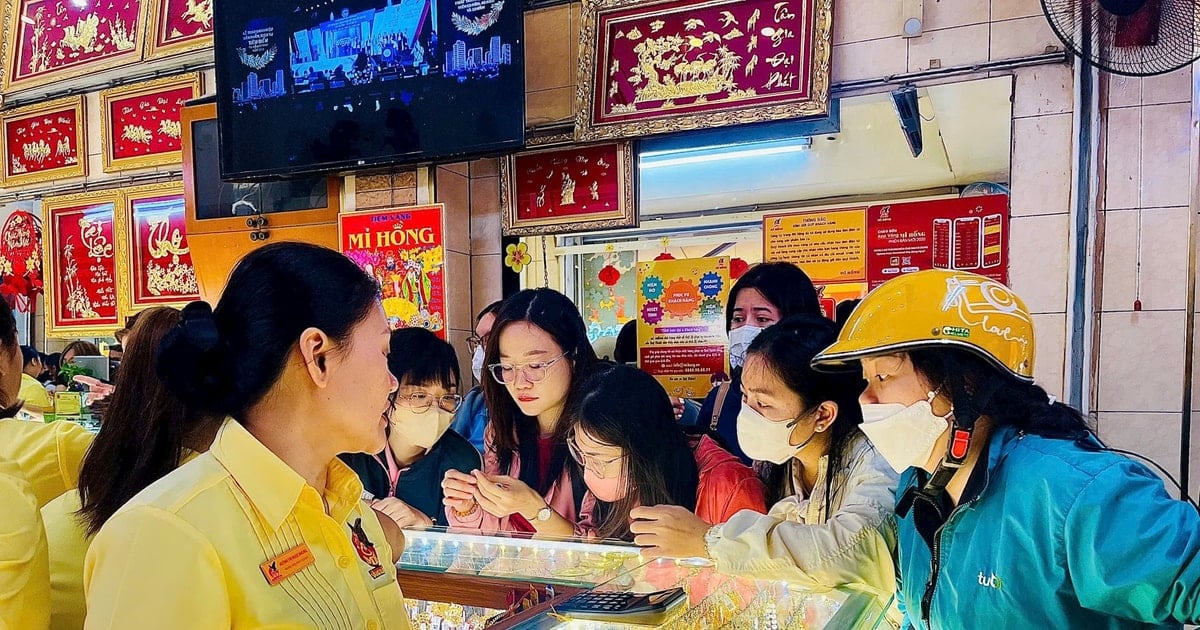

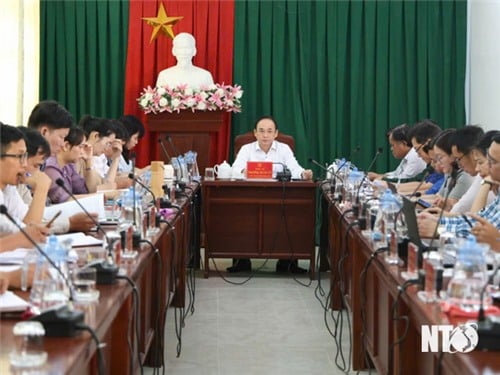
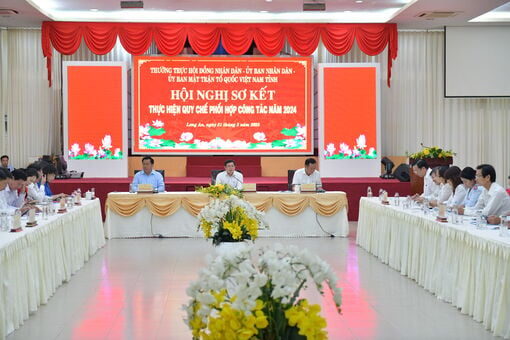
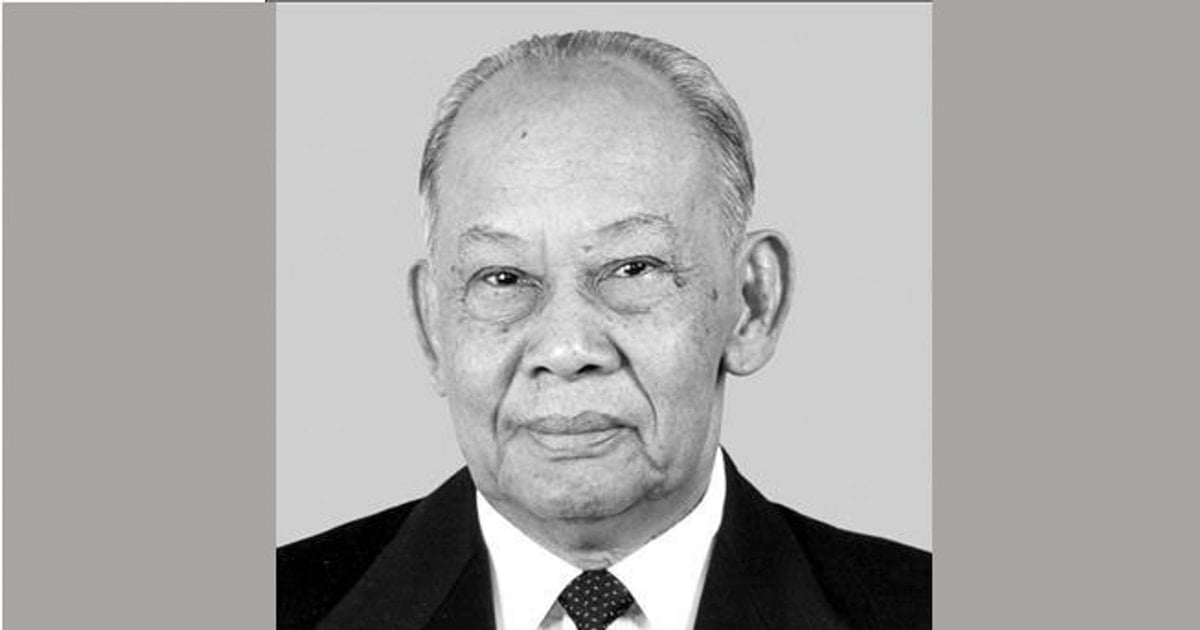














Comment (0)